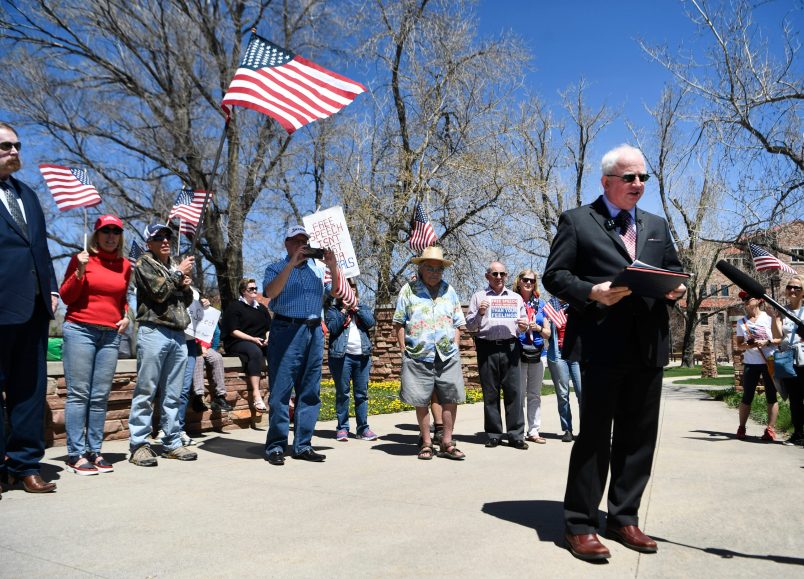John Eastman asked a federal judge on Thursday to please take back his finding that the Trump lawyer likely misled a federal judge during the effort to overturn the 2020 election.
Eastman, via attorneys, asked U.S. District Judge David Carter for the Central District of California to either “reconsider” his order demanding Eastman hand over records to the January 6 Committee, or halt it until he could file an appeal.
Carter ruled last week that Eastman — and his client Donald Trump — likely misled an Atlanta federal court in referencing data about voter fraud that they knew to be inaccurate. Carter held on that basis that some emails relevant to the lawsuit could be sent to the January 6 Committee, finding that they were likely not subject to attorney secrecy because they were potential evidence of a criminal act, known as the crime-fraud exception.
Eastman asked Carter on Thursday to review additional emails that he did not disclose to the public.
“Dr. Eastman submits that the full email record clearly shows that the President’s lawyers took great care to ensure all court filings were accurate,” attorneys for Eastman wrote.
Carter also found that the lawsuit in question — Trump v. Kemp — was pretextual, not part of an effort to resolve a legitimate dispute, but rather an attempt to “disrupt or delay the January 6 congressional proceedings through the courts.”
Eastman denied that in the filing, and said that he was submitting an affidavit that includes records which had already been submitted that “explain the true import of the email record surrounding the Presidential certification submitted in connection with Trump v. Kemp, and the purpose for the filing of the complaint in that case.”
“The affidavit and referenced documents clearly show that no false information was knowingly submitted by the President or his attorneys, and that the complaint was not filed for an improper purpose,” Eastman wrote.
It’s not clear how much of an impact his will have. Per Eastman’s own admission, the records he is submitting to Carter are not new, and already formed a part of the review that led Carter to conclude Eastman and Trump likely broke the law.
The Trump campaign had filed an earlier lawsuit in December 2020 asking a Georgia state court to throw out election results in the state, and made a number of specific claims about categories of supposedly illegal voters that had infected the race.
By late December, per an email that Carter cited in his ruling, Eastman knew that the specific numbers were false. But in a complaint that Trump verified and filed the next day, Eastman incorporated the state lawsuit’s claims without warning the court that the data was faulty, while asking a federal judge to throw out Biden’s win in Georgia.
Legal ethics experts suggested to TPM that this may place Eastman in hot water.






